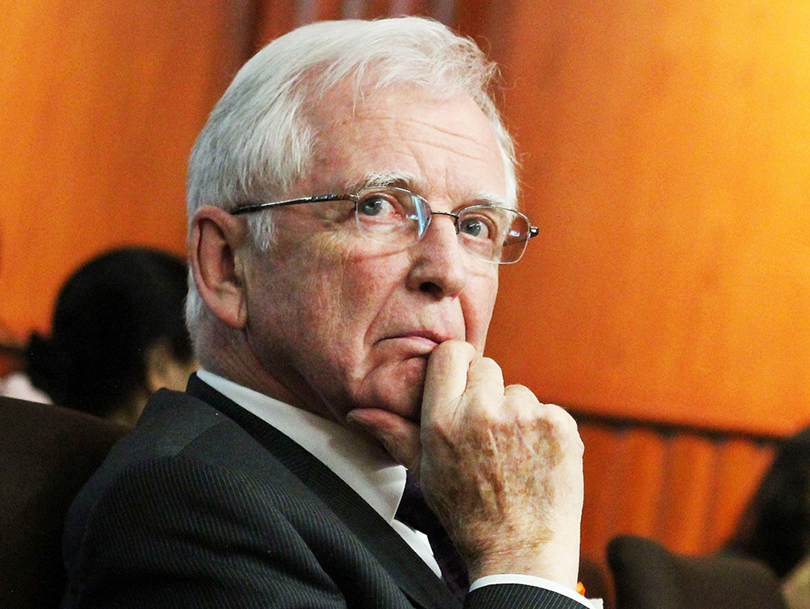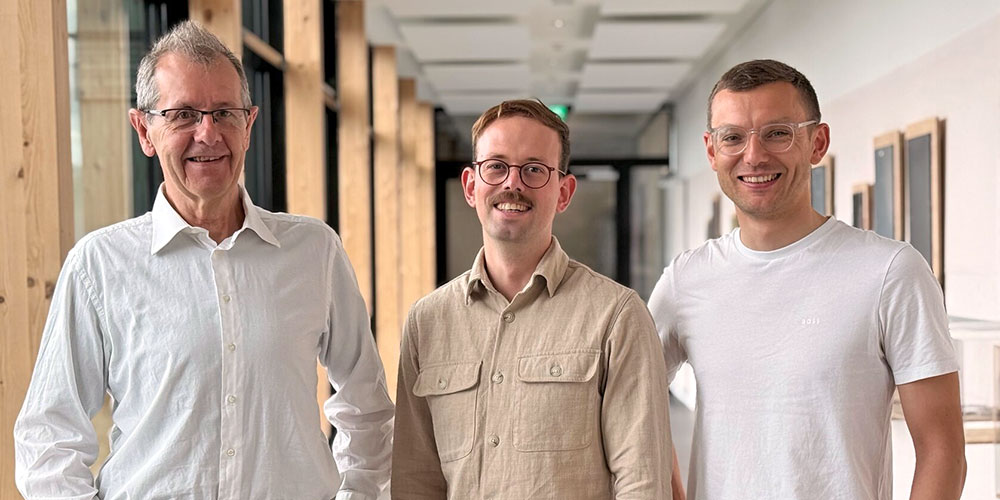Nobel Prize Laureate Harald zur Hausen at the Pharmazentrum
Around 40 years ago Harald zur Hausen discovered a connection between human papillomavirus (HPV) infections and cervical cancer. His research lead to the development of the first HPV vaccine in 2006. On April 27 2016, the virologist and Nobel Prize laureate will visit the Pharmazentrum of the University of Basel and talk about bovine meat and milk as risk factors for specific cancers and neurodegenerative diseases. The lecture is open to all interested.
18 April 2016
For almost sixty years, Harald zur Hausen has been investigating cancer-causing viruses. In 2008, he was awarded the Nobel Prize in Medicine for his discovery of human papilloma viruses causing cervical cancer. In the upcoming public “Seminar on Drug Discovery and Development” Lecture, the virologist from the German Cancer Research Center in Heidelberg, Germany, will talk about the consumption of dairy cattle milk and bovine meat and their contribution to neurodegenerative diseases, colon and breast cancer on April 27.
The Role of Viruses in Cancer Development
The World Health Organization estimated in 2002, that 17.8% of human cancers were caused by infection, with 11.9% being triggered by viruses. In his lecture, Harald zur Hausen will focus on potentially oncogenic viruses from milk and meat which lead to latent infections and finally specific cancers.
Life’s work: research on viruses
Harald zur Hausen studied Medicine at the Universities of Bonn, Hamburg and Düsseldorf and received his M.D. in 1960. After receiving the license to practice medicine, he worked as a postdoc at the Institute of Microbiology in Düsseldorf, and subsequently in the Virus Laboratories of the Children's Hospital in Philadelphia where he was later appointed as Assistant Professor. From 1983 until 2003 he was appointed as Scientific Director of the Deutsches Krebsforschungszentrum (German Cancer Research Center) in Heidelberg.
For his outstanding scientific achievements Harald zur Hausen received 33 honorary doctorates from several Universities and a number of national and international awards, among them the Robert-Koch-Price, the Federation of the European Cancer Societies Clinical Research Award Raymond Bourgine Award, Paris, the Coley-Award, New York, the Life Science Achievement Award of the American Association for Cancer Research, San Diego, and the Nobel-Prize for Medicine in 2008.
Public lecture “Bovine Meat and Milk as Risk Factors for Specific Cancers and Neurodegenerative Diseases” by Harald zur Hausen, April 27 2016, 5.00 pm, Lecture Hall 1, Pharmazentrum of the University of Basel, Klingelbergstrasse 50, 4056 Basel. Free entrance.
Public “Seminars on Drug Discovery and Development”, 27 2016, 5.00 pm, Lecture Hall 1, Pharmazentrum of the University of Basel, Klingelbergstrasse 50, 4056 Basel. Free entrance.



